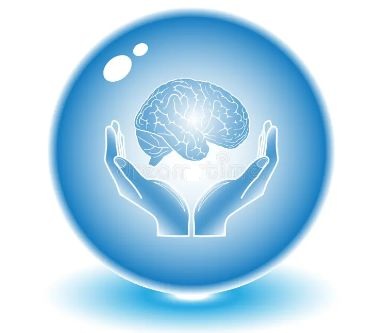Clinical Hypnotherapy and Advanced NLP
Clinical Hypnotherapy is recognized by the British Medical Association and The National Institute of Clinical Excellence (NICE). It is a powerful alternative that can alleviate a whole range of problems.
I use different Hypnotherapy methods depending on your needs.
In our initial session, we will discuss the main issues you would like to address. This enables me to understand your ‘map of the world’ and then we can create different paths, re-mapping the parts you hope to change
Hypnotherapy is when your therapist communicates with your subconscious mind, using the power of suggestion for beneficial change. A Hypnotherapist uses hypnosis to give relevant, positive, beneficial suggestions to help an individual bring about the change they desire. It is not the same as sleep as you will still have awareness and control, Hypnotherapists often require their clients to be in a deeply relaxed state to enable them to use their imagination fully. For this reason, it’s imperative that the individual feels completely comfortable and safe with their hypnotherapist. Hypnosis is a different state of consciousness from being awake or asleep, and many people compare the deep, relaxed state of hypnosis to enjoyable daydreaming.
Altered states of awareness have been recognised for thousands of years and hypnosis is widely accepted as a beneficial psychological therapy to access our inner potential. Techniques can be used to reveal issues from an individual's past that may be causing them distress, or the approach can be focused more on their present problems. Hypnotherapy can generally help with most emotional problems an individual is finding hard to cope with, and some physical problems can also be effectively treated with hypnosis too, such as IBS and insomnia. However, it’s important for an individual to consult their GP before approaching a hypnotherapist if they suffer from clinical depression, epilepsy or schizophrenia.
Hypnotherapists will often combine hypnosis with other therapy such as NLP, psychotherapy and counselling techniques to benefit individuals. The techniques used will depend on the issue the individual is seeking help for.
Neuro-Linguistic Programming (NLP) addresses the way in which we think and process our thoughts (Neuro), the language patterns we use (Linguistic) and our behaviours (Programming) and how these interact to have a positive (or negative) effect on us as individuals. NLP explores the relationship between language, behaviour and excellence. It is essentially a model used to identify and analyse the linguistic techniques used subconsciously by successful people, in order to produce a recipe for excellence.
The process of NLP explores neurology (which regulates how our bodies function and receive experiences), language (which determines how we communicate and think) and programming (our behavioural response) in a bid to find out how their interplay with one another affects our behaviour and the outcomes of our behaviour.
NLP techniques use both the conscious and unconscious mind to replace pre-programmed negative behaviours with far more positive ones.
An NLP practitioner will look at your attitude, language and your use of it, your understanding of relationships and how you build a rapport and the physical and emotional states which are best for accomplishing a task. Effective communication and perception of ourselves and others will also be key focuses and all will be examined so that strategies for improving understanding, motivation, learning and remembering can be formed.
Are there different types of hypnotherapy?
Suggestion Hypnotherapy
Suggestion hypnotherapy involves the hypnotherapist giving an individual's unconscious mind a series of ‘suggestions’. These suggestions can help an individual to find it easier to do something they want to do (e.g. public speaking) or easier to stop doing something they don’t want to do (any limiting belief)
Suggestion Hypnotherapy is often used when there is no root cause that needs to be dealt with, or when there are time constraints (such as an individual wanting to deal with a fear of flying). Suggestion hypnotherapy is often considered a short-term therapy compared with other types of therapy, and if changes occur, they can often do so fairly early on in the therapy sessions.
Analytical Hypnotherapy
Analytical Hypnotherapy (also called Hypnoanalysis) can be effective in dealing with deeper issues and involves psychotherapy using hypnosis. Analytical hypnotherapy seeks to find the root cause of a problem, and deal with the issue. For instance, a phobia may be 'masked' using suggestion therapy, however the root cause will still exist. Analytical hypnotherapy looks to identify the root cause and deal with it; the root cause then becomes powerless and insignificant.
Analytical hypnotherapy is a very involving process and usually requires much more commitment than suggestion therapy. However, once the root cause has been identified and dealt with, the results can be life changing. Whereas suggestion therapy manages a problem, analytical hypnotherapy works to resolve it.
Cognitive Hypnotherapy
Cognitive Hypnotherapy uses a more scientific approach to therapy that is significantly different from the traditional schools of Hypnotherapy. Cognitive Hypnotherapy draws its influence from a number of other validated theories, such as Positive Psychology, Neuroscience and NLP and combines these in a way that fits the client's personal goals, values and personality. By drawing from this range of techniques from different disciplines means that a tailored approach for each client can be created - there's no "one size fits all" model here.
Cognitive Hypnotherapists aim to get into the mindset of the client to work through any presenting issues, using techniques and language based on the client's unique model of the world. Cognitive Hypnotherapy also uses an analytical approach to rationalise and work through any unwanted thoughts and behaviours from the past, it then uses techniques that retrain the brain in the present to ensure that the changes that clients would like to make are fully realised.
Does everyone respond to hypnotherapy?
According to the British Society of Clinical Hypnosis (BSCH), it is estimated that 85% of people will respond at some level to clinical hypnotherapy. Some individuals are more likely to respond to hypnotherapy than others and having confidence in the technique helps. Believing change from hypnotherapy is possible is important and if an individual is personally motivated to change, hypnosis is often more likely than if the individual relies completely on their hypnotherapist and doubts whether they have the ability to access their subconscious and make changes happen.
It is important to recognise that it is not possible to hypnotise an individual against their will, and even if an individual is hypnotised, they can reject any suggestion that is not beneficial to them. Hypnotherapy is therefore safe, with no harmful side effects.
NHS Guide to Hypnotherapy
Mindfulness
Mindfulness is about being aware of yourself and your surroundings in the here and now,
focusing on the present moment without any external disruption or internal brain chatter.
Mindfulness has been practised by Buddhists for thousands of years and, more recently, scientists and neuroscientists, together with the Dalai Lama, have collaborated to show how mindfulness practices can improve our physical and mental health, and even produce changes in parts of the brain related to memory, self-awareness and emotional regulation.
You can start using mindfulness in all aspects of your everyday life.
Why is it useful to practise Mindfulness ?
Mindfulness has the following benefits:-
Lowers Stress
Reduces depression
Reduces internal dialogue and brain chatter
Increases empathy
Increases tolerance of self and others
Increases Self-awareness
Increases self-acceptance
Enhances equanimity
Link to NHS Guide Website dedicated to Up-to-Date Mindfulness and Neuroscience information and articles
Mobile : 07709302003
Email: newbridgetherapy3@gmail.com


